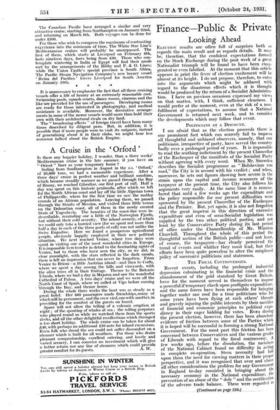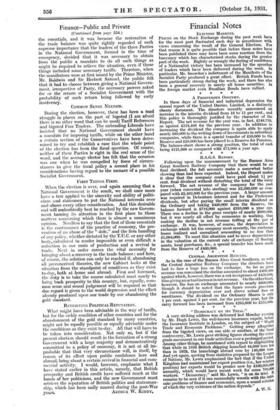THE *FISCAL CONTROVERSIES.
Recent events, including the prolonged industrial depression culminating in the financial crisis and the abandonment of the gold standard by Great Britain, have for the moment served in themselves to impose a powerful if temporary check upon profligate expenditure, and the same forces have been responsible for bringing together under one roof for a time politicians who for some years have been flying at each others' throats and gravely injuring the public interests, by their sacrifice of financial and economic principles to political expe. diency in. their eager bidding for votes. Eves during the present election, however, there has been abundant evidence of friction between some of the Parties which it is hoped will be successful in forming a strong National Government. For the most part this friction has been concerned between Conservatives and the various grades of Liberals with regard to the fiscal controversy. A few weeks ago, before , the dissolution, the members of the National Cabinet _found no difficulty in acting in complete co-operation; Stern necessity had laid upon them the need for viewing matters in their proper perspective, and it was recognized that over and above all other considerations the problem for any Government in England to-day consisted in bringing about the necessary . economy in the . National ..expenditure, the prevention of an abuse of the " dole " and the rectification of the adverse trade balance. These were regarded 81 (Continued on page 556J Finance—Public and Private (Continued from page 554.) the essentials, and it was because the restoration of the trade balance was quite rightly regarded of such supreme importance that the leaders of the three Parties in the National Government, formed in the time of emergency, decided that it was necessary to obtain from the public a mandate to do all such things as might be required to relieve the situation, even if those things included some necessary tariffs. Therefore, when the manifestoes were at first issued by the Prime Minister, Mr. Baldwin and Sir Rerbeit Sainuel, the public felt that it had to choose between giving a National Govern. ment, irrespective of Party, the necessary powers asked for or the return of a Socialist Government with the probability of such return being followed by early insolvency.















































 Previous page
Previous page